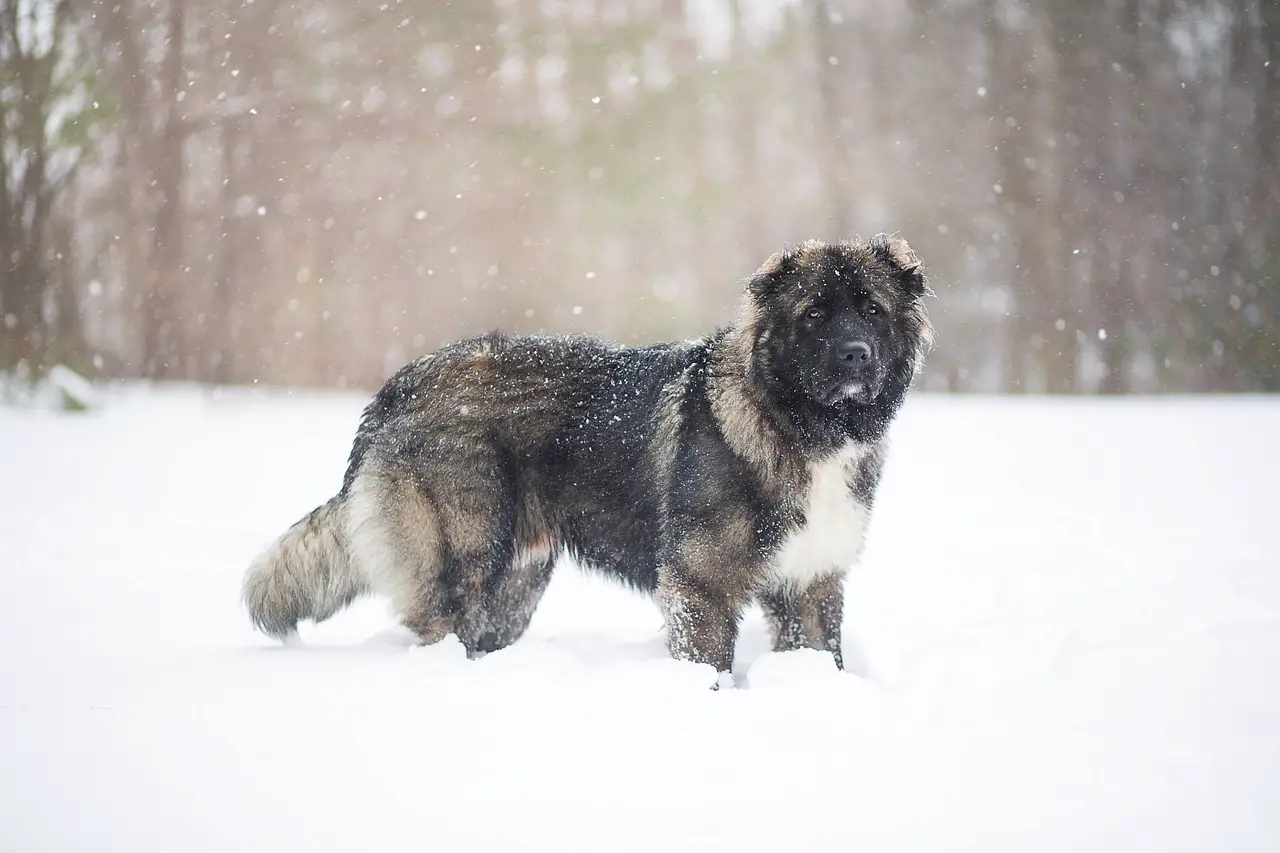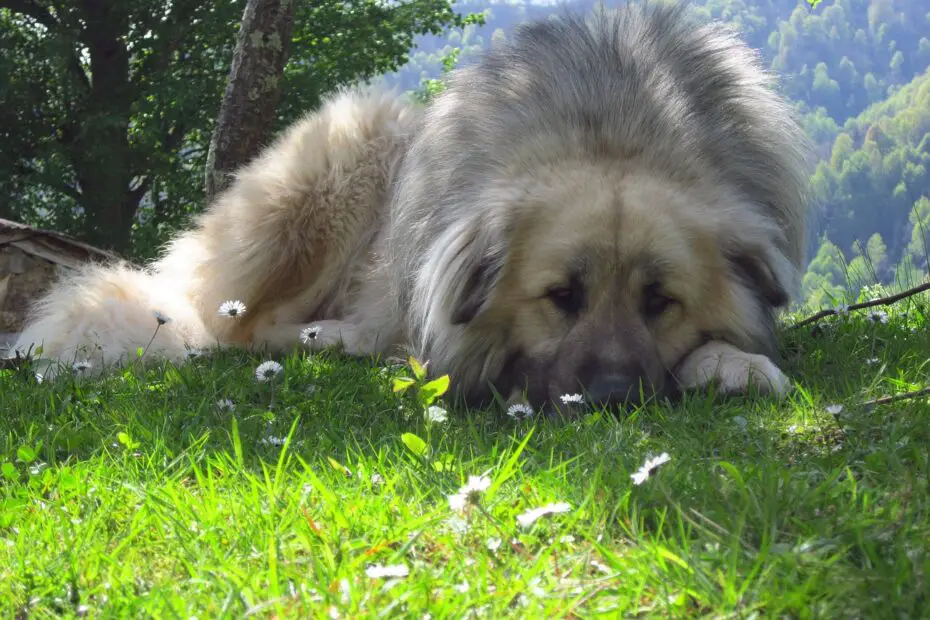Are you in search of a loyal and protective companion? Look no further than the Russian Bear Dog. Known for their imposing size and fierce loyalty, these magnificent canines are more than just adorable fluff. In this article, we will explore the fascinating world of the Russian Bear Dog, including their physical characteristics, temperament, training needs, and their role as exceptional guard dogs.
You may also want to know if a hysky is related to a wolf.
What is a Russian Bear Dog?
The Russian Bear Dog, also known as the Caucasian Shepherd Dog or the Caucasian Ovcharka, is a breed that hails from the rugged regions of the Caucasus Mountains. Let’s dive deeper into their physical description, origin, and history.
Physical Description
Russian Bear Dogs are impressively large and robust. Males can weigh up to 200 pounds (90 kilograms) and stand around 30 inches (75 centimeters) tall at the shoulder, while females are slightly smaller. They have a dense double coat that comes in various colors, including white, gray, fawn, or brindle. This thick coat helps protect them from harsh weather conditions, while their muscular build showcases their strength and endurance.
Origin and History
Originating from the Caucasus Mountains, these dogs have a rich history of working alongside shepherds to protect livestock from predators. Their lineage can be traced back thousands of years, where they were valued for their formidable guarding abilities. Today, they are sought after as both working dogs and loyal companions.
Temperament and Personality
Underneath their imposing appearance, Russian Bear Dogs have a gentle and loyal nature. They form strong bonds with their families and are fiercely protective. Let’s explore their temperament and personality traits.
Russian Bear Dogs have a calm and confident demeanor. They are known for their independent thinking and keen instincts, which make them excellent guard dogs. Their loyalty knows no bounds, and they will defend their loved ones with unwavering devotion.

Training and Socialization
As intelligent and strong-willed dogs, Russian Bear Dogs require consistent and patient training. Early socialization is crucial to ensure they grow up to be well-rounded and confident individuals. Here’s what you need to know about training and socializing a Russian Bear Dog.
Training should focus on positive reinforcement techniques, using rewards and praise to motivate them. Due to their protective nature, they may display some stubbornness, so it’s important to establish yourself as a confident and consistent leader.
Socialization should begin from an early age to expose them to various people, animals, and environments. This helps them develop into well-adjusted dogs that can differentiate between friend and foe.
Russian Bear Dog as a Guard Dog
The Russian Bear Dog’s natural instinct to protect makes them exceptional guard dogs. Their imposing size and powerful presence act as a deterrent to potential intruders. Let’s explore their role as reliable and effective guardians.
Russian Bear Dogs are known to be territorial and vigilant. They have a strong protective instinct and will not hesitate to defend their family and property when faced with a threat. Their deep bark and imposing stature alone can be enough to ward off intruders.
Care and Maintenance
To keep a Russian Bear Dog happy and healthy, they require proper care and maintenance. Here are some important considerations regarding exercise, grooming, and health. Make sure to give them the right food.
Exercise and Grooming
Russian Bear Dogs are an active breed that requires regular exercise to prevent boredom and maintain their physical and mental well-being. Daily walks, playtime, and ample space to roam are essential to meet their exercise needs.
Grooming is an important aspect of caring for a Russian Bear Dog. Their dense double coat requires regular brushing to remove loose hair and prevent matting. During shedding seasons, more frequent grooming sessions may be necessary.
Health Considerations
Like any breed, Russian Bear Dogs are prone to certain health issues. It’s essential to stay vigilant and ensure regular veterinary check-ups. Common health concerns include hip dysplasia, obesity, and certain genetic conditions. Providing a balanced diet, regular exercise, and maintaining a healthy weight can contribute to their overall well-being.
Conclusion
The Russian Bear Dog embodies strength, loyalty, and protective instincts. From their origins as guardians of livestock in the Caucasus Mountains to their role as dedicated family protectors today, they have proven themselves to be remarkable companions. However, owning a Russian Bear Dog requires dedication, proper training, and socialization. With the right care and guidance, these majestic dogs can be a true source of joy and security for their families.
FAQs
1. Are Russian Bear Dogs good with children?
Russian Bear Dogs can be gentle and patient with children when properly socialized and trained. However, due to their large size and protective nature, supervision is always recommended.
2. Do Russian Bear Dogs get along with other pets?
Early socialization plays a vital role in how Russian Bear Dogs interact with other animals. With proper introductions and training, they can coexist peacefully with other pets in the household.
3. How much exercise do Russian Bear Dogs need?
Russian Bear Dogs require regular exercise to keep them physically and mentally stimulated. Daily walks, play sessions, and access to a secure outdoor area are necessary to meet their exercise needs.
4. Are Russian Bear Dogs suitable for first-time dog owners?
Due to their size, protective instincts, and independent nature, Russian Bear Dogs may not be the best choice for first-time dog owners. They require experienced handlers who can provide consistent training and leadership.
5. How long do Russian Bear Dogs live?
On average, Russian Bear Dogs have a lifespan of 10 to 12 years. However, with proper care, nutrition, and regular veterinary check-ups, they can live longer, healthier lives.
